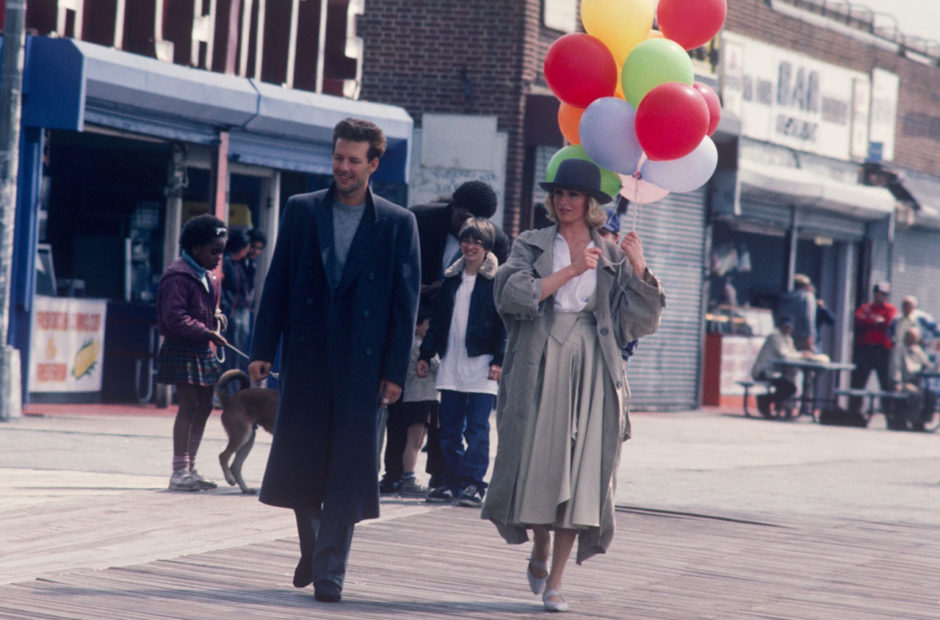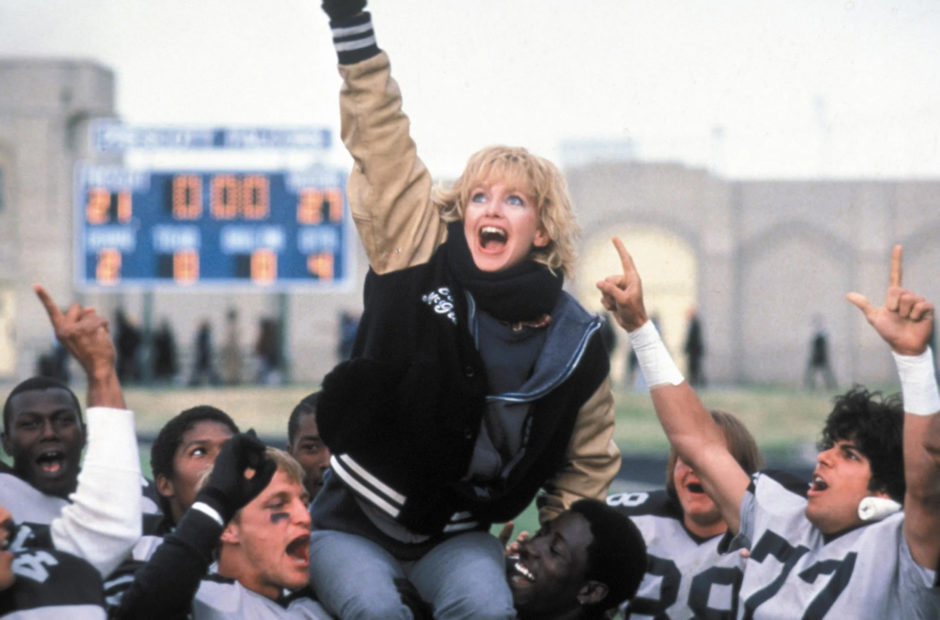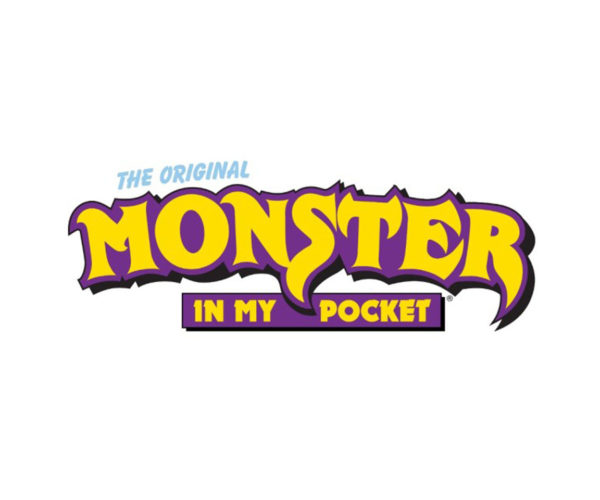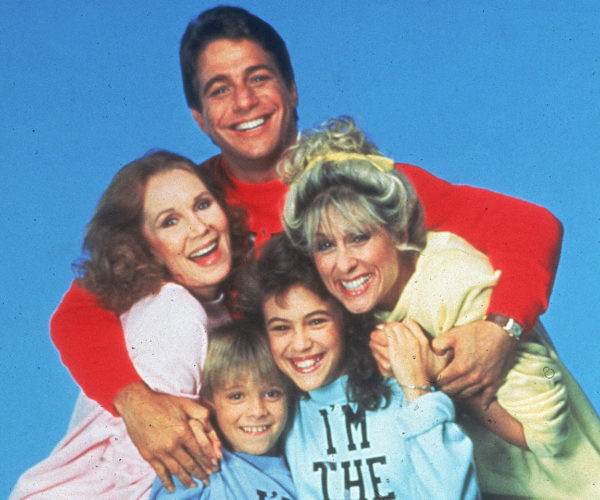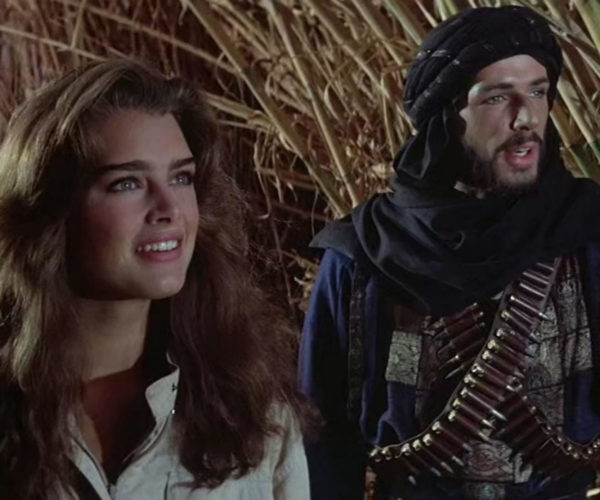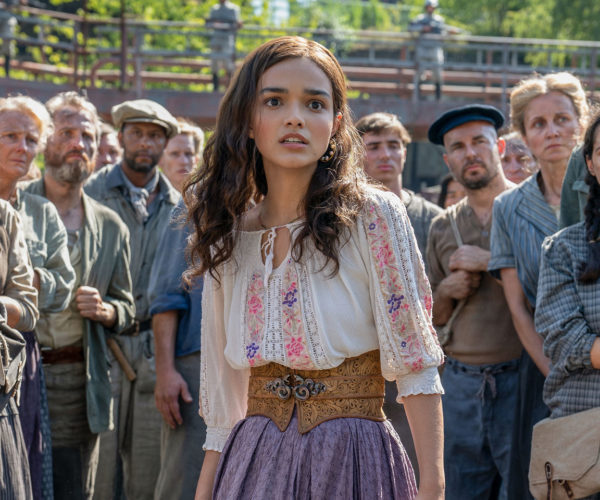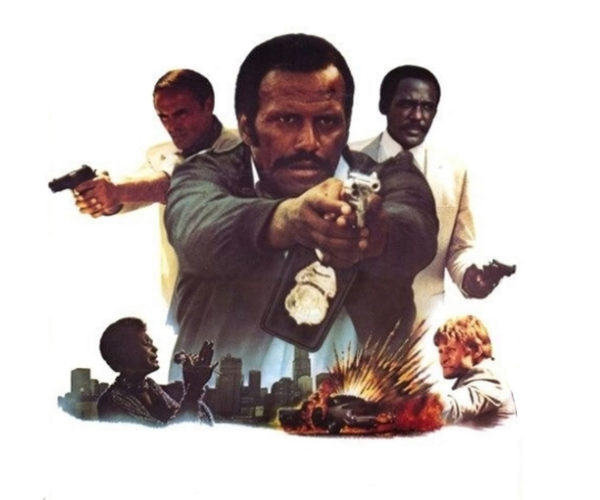Welcome to an exciting year-long project here at The Nerdy. 1983 was an exciting year for films giving us a lot of films that would go on to be beloved favorites and cult classics. It was also the start to a major shift in cultural and societal norms, and some of those still reverberate to this day.
Advertisement
We’re going to pick and choose which movies we hit, but right now the list stands at nearly four dozen.
Yes, we’re insane, but 1983 was that great of a year for film.
The articles will come out – in most cases – on the same day the films hit theaters in 1983 so that it is their true 40th anniversary. All films are also watched again for the purposes of these reviews and are not being done from memory. In some cases, it truly will be the first time we’ve seen them.
This time around, it’s December 9th, 1983, and we’re off to see Christine, Scarface, Sudden Impact, and Yentl.
Quick side note: Since we launched this series this year, we’ve discovered that Vintage Video Podcast is doing the exact same project with two differences: First, it’s audio (naturally), and second, they are doing every major film. We’ve listened to numerous episodes and it’s fun checking off their thoughts against my own. Check them out over at Vintage Video Podcast.
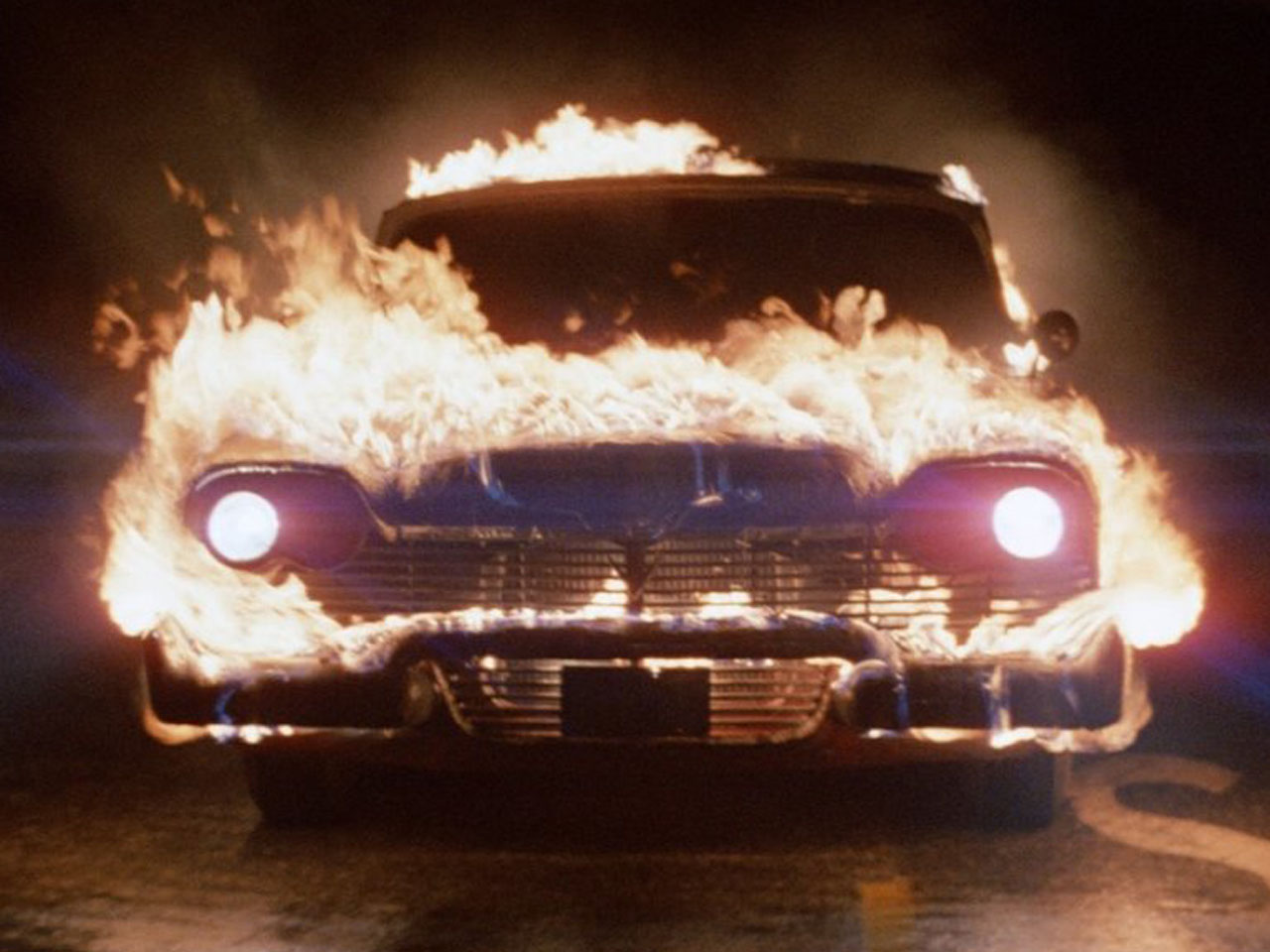
Christine
In the 1980s, if Stephen King wrote a book, it was going to be turned into a movie. Sadly, the quality varied wildly at times, and even seasoned filmmakers didn’t seem to always know how to handle his productions.
A case in point would be Christine.
It is almost impossible for you to not know the plot of this film, but the short version is a 1958 Chevy Plymouth Fury rolls off the production line embodied by evil. You have no clue why, it just is. And before it even leaves the factory it has injured one work and killed another. In 1978 a high school senior locates the car in a the driveway of a house and becomes obsessed with it. As his obsession grows, the stronger Christine – the name given to the car by its previous owner – grows.
Seeing as the movie came out the same year as the book, to say it feels rushed would be an understatement. There is really nothing inherently ‘bad’ about the film version of Christine, it just exists. Being directed by John Carpenter (Halloween), however, you would expect more from it. Very rarely does Christine feel like a true menace in the film. There are a few scenes of her ‘sneaking’ up on people, but it is never entirely believable. Things do improve slightly when you learn she is willing to damage herself to kill those in her way, but even then it feels low stakes somehow.
Despite the somewhat lackluster visuals and story, I have nothing but praise for the three leads of the film. Keith Gordon does an excellent job of portraying Arnie’s slow descent into madness and obsession, while John Stockwell’s Dennis conveys a true sense of grief and loss watching what his friend is going through. And Alexandra Paul’s performance as Leigh, the weakest of the three, still gets the role across the finish line.
With a story by King and Carpenter behind the camera you just would expect more, and sadly it never gets there in the end.

Scarface
It’s confession time: I had never seen Scarface before this viewing.
You know how everyone has that one major movie everyone has seen except for them? Scarface was mine. I’ve always meant to get to it, but just never been able to get around to it.
Tony Montana arrives in Miami as part of the Mariel boatlift and immediately sets about trying to rise through the ranks of the city’s underworld. Much to the chagrin of some of the existing members of this illicit world, Tony excels at it and quickly finds himself at the top of the pyramid, and even becoming integral to the plans of crime lords from around the world. Sadly, for him, he has a code of ethics that ultimately is his downfall.
For the majority of the film, Scarface is a fairly straightforward crime film with all of the usual hallmarks: The humble beginnings, the desire for more, the rise to power, and the eventual fall. Where the film struggled for me was the method of the fall. When Tony is summoned by Sosa to play a role in killing the activist that has been annoying the government officials and drug lords of Bolivia, his role in this doesn’t make any sense. The need for Tony to personally take the assassin to New York, a city he doesn’t know well, to guide him around and drive him just seems so far below Tony’s status. Yes, he is someone the Bolivians can trust, but for Tony to be so personally involved with this situation just doesn’t make any logistical sense.
And when you add in that immediately following the failure of this plan Sosa has a small army arrive in Miami to take out Tony, it makes even less sense.
Scarface is 100% carried by its performances. There is nothing especially remarkable about the script. We have seen variations on this story a multitude of times, and it doesn’t add anything particularly new to the narrative. Luckily, the film has a stellar cast that is able to elevate what would have been a hoo-hum script in lesser performer’s hands.
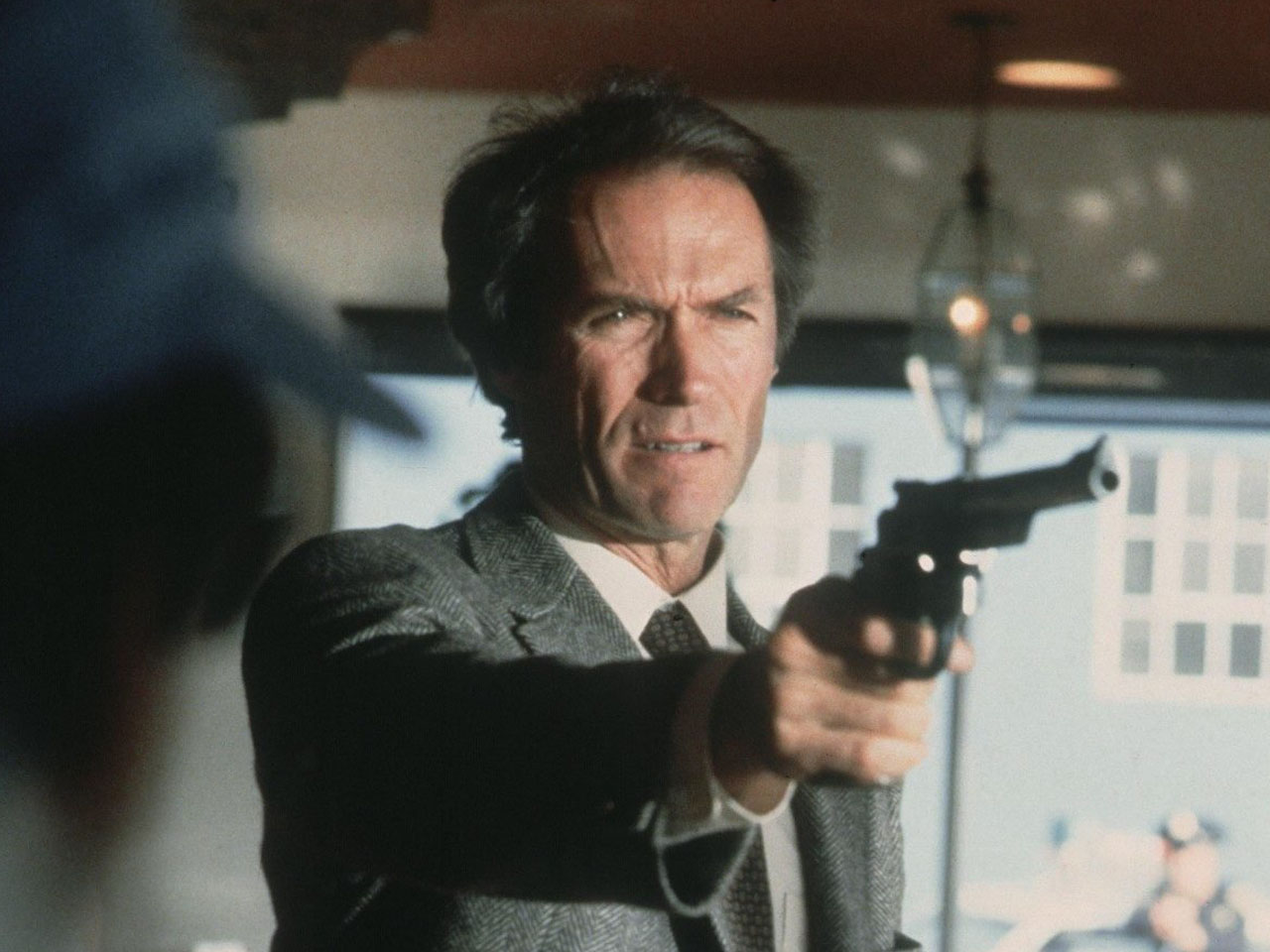
Sudden Impact
As amazing as it may sound, they somehow found a way to make a boring Dirty Harry movie.
Clint Eastwood returned for his fourth outing as Inspector Harry Callahan. This time he’s already in trouble from the jump of the film due to a bad arrest, and things just seem to spiral for him from there. He eventually gets involved in investigating a series of murders that the audience soon learns are the results of a woman – played by Eastwood’s then partner Sandra Locke – taking revenge on a group of men that raped her and her sister years before. While Spencer (Locke) has been able to make a success of her life, the events of that night left her sister in a catatonic state.
While investigating the murders, Callahan is also dodging hitmen sent after him for causing a mob boss’ heart attack because that is a thing that totally makes sense.
Sudden Impact is amazingly boring. Callahan is more of a passenger in the main story than any sort of active participant. Yes, he finally figures out that Spencer is the killer, but only after she has killed nearly everyone on her list. And then, at the end, when he know it’s her, and he can turn her in… he lets her go.
Yes, I understand that Callahan always worked by his own rules, but at the end of the day, he still believed in the law. Here he allows a woman to get away with multiple incidents of vigilante justice. Yes, the system failed her, but that doesn’t mean you get to take everything into your own hands.
In addition to all of this, the film itself just feels incredibly stuck in the 70s. From the music to the film stock, everything just feels like a holdover from a decade that was increasingly in the rearview mirror. There was no forward momentum for Callahan here, and that is a definite shame.
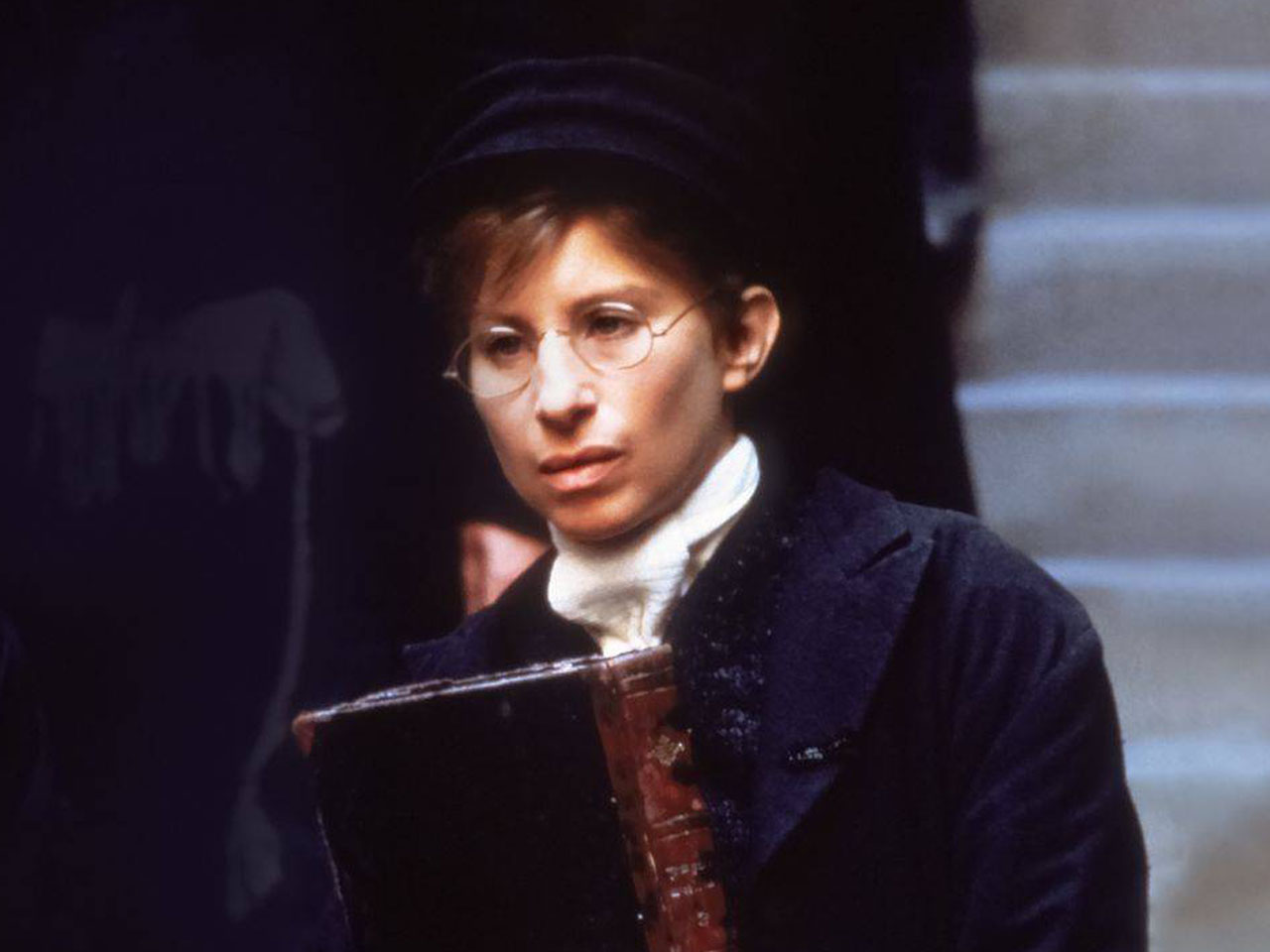
Yentl
It may surprise you to learn that I was 12 when Yentl came out, and somehow I was not exactly running out to watch a movie of Barbara Streisand crossdressing so she could go to school while singing about it.
Judge me if you must.
Set in Poland in 1904, Yentl is a woman living with her father who desperately wants to learn the Talmud. In her time, however, it is restricted to men. When her father dies, who had been teaching her in secret, she disguises herself as a man and gets into a Yeshiva. Now, going by the name of Anshel, she befriends Avigdor (Mandy Patinkin), who is engaged to Hadass (Amy Irving). As the story unfolds, Yently begins falling for Avigdor, but eventually has to marry Hadass due to some circumstances.
Let’s be very clear, this movie is 100% a starring vehicle for Streisand as not only did she star, but she co-wrote it, produced it, and even directed it. It’s her film from top-to-bottom, and it works. There were times I felt the film got a bit too nitty-gritty about the Talmud, but that falls away as the story progresses, but it is still central to both “Anshel” and Avigdor’s lives.
Where the film feels a bit lopsided is in the musical side of the equation. While it feels like a musical at times, it never fully commits to the concept. It is only Yentl who has the musical monologues, and they feel random in their placements. There are long stretches of nothing, and then there will be one that seems to be the inner thoughts of the situation. One song in particular sounds more like a grocery list than lyrics.
Despite the unevenness of the musical side of the equation, the film is still entertaining. The first act could have definitely used some tightening up, but the film delivers an enjoyable story in the end.
1983 Movie Reviews will return on Dec. 16, 2023 with Terms of Endearment, D.C. Cab, and The Keep!
Fun Jug Media, LLC (operating TheNerdy.com) has affiliate partnerships with various companies. These do not at any time have any influence on the editorial content of The Nerdy. Fun Jug Media LLC may earn a commission from these links.

